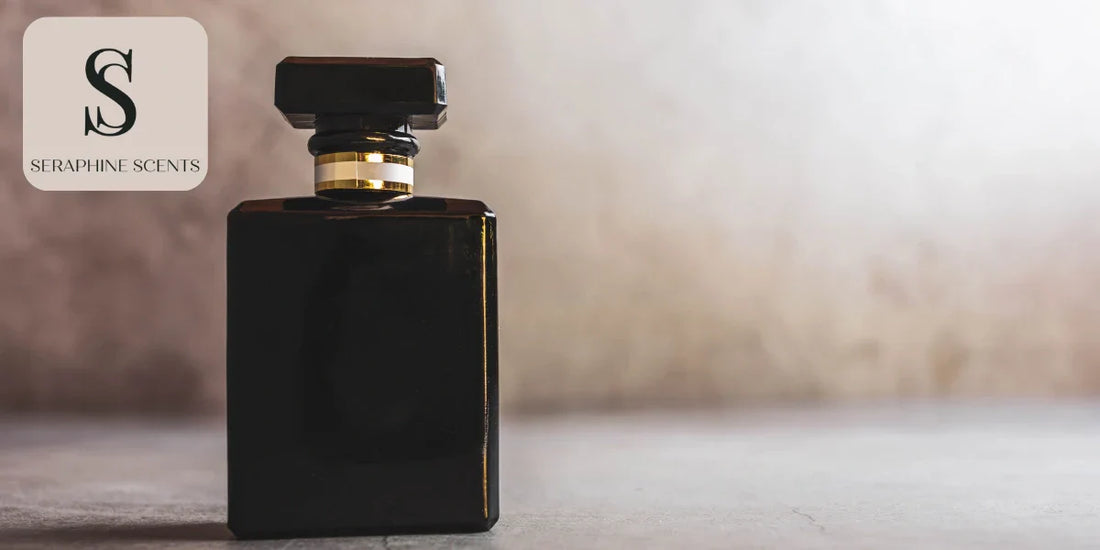
Understanding Olfactory Fatigue: Why You Stop Smelling Your Perfume
Have you ever sprayed on your favorite perfume in the morning, only to wonder by lunchtime if it's already worn off? You sniff your wrist… nothing. But your colleagues still compliment your scent. What’s going on?
This phenomenon is called olfactory fatigue, also known as nose blindness. In this blog, we’ll explore why it happens, how it affects your perception of fragrance, and what you can do to overcome it—so you never feel like your perfume “disappears” again.
What Is Olfactory Fatigue?
Olfactory fatigue is a natural, biological response where your nose becomes less sensitive to a smell after continuous exposure. It’s your body’s way of filtering out constant stimuli so it can pay attention to new and potentially important smells in your environment.
This same process happens with other senses too. For example, you might stop noticing the hum of an air conditioner or the feeling of your watch on your wrist after wearing it for a while.
Why Your Nose “Stops Working” with Perfume
When you apply perfume, especially near your nose (like on your neck or collarbone), your olfactory receptors are bombarded with the scent. Within minutes to an hour, your brain starts tuning it out. The perfume is still there—but your brain considers it “background” and shifts focus.
So while others around you may still smell your fragrance clearly, you stop detecting it because your olfactory system is in rest mode. This is especially common with daily signature scents, which your brain associates with familiarity and safety.
How Long Does Olfactory Fatigue Last?
The duration varies, but typically olfactory fatigue sets in within 15–60 minutes after exposure to a strong scent. It can last several hours, depending on the fragrance’s strength, your environment, and how often you reapply perfume.
The more often you wear a particular fragrance, the faster your nose gets used to it. This is why rotating perfumes can help maintain your scent sensitivity.
Does This Mean My Perfume Doesn’t Last?
No. Just because you can’t smell your perfume doesn’t mean others can’t. In fact, many perfumes—especially long-lasting designer fragrances—continue to project and leave sillage even when you no longer notice it.
If you’re unsure, ask someone close to you if they can still detect your fragrance. You might be surprised how strong it still is.
How to Reset Your Nose
If you want to “wake up” your nose during the day, here are some proven tricks to overcome olfactory fatigue:
- Smell something neutral: Inhale the scent of your own skin or clothing without fragrance.
- Fresh air break: Step outside for a few minutes to clear your scent palette.
- Coffee beans myth: While commonly used, coffee beans may not be scientifically proven to reset your nose—but the act of shifting scents might help refocus your receptors.
- Hydrate and breathe deeply: Proper hydration and oxygen flow can also help improve olfactory awareness.
Tips to Minimize the Effect
Although olfactory fatigue is natural, here are some ways to minimize its impact on your fragrance experience:
- Apply perfume to areas further from your nose: Wrists, back of the neck, behind the knees, or your clothing.
- Rotate your fragrances: Give your nose something new to enjoy every few days.
- Use layering techniques: Start with a scented lotion or oil, followed by perfume. Learn more about layering in this guide.
- Choose quality perfumes: High-quality formulations from our curated collection tend to evolve and stay interesting on the skin.
When to Reapply (and When Not To)
Because of olfactory fatigue, it can be tempting to overspray. But resist the urge—your scent may still be projecting well, even if you can’t detect it. To avoid overdoing it:
- Reapply only after 4–6 hours, depending on the perfume type.
- Use smaller amounts if indoors or in close contact with others.
- Stick to lighter perfumes in warm or humid climates like Singapore.
The Science of Scent Awareness
Olfactory fatigue is not a flaw—it's a protective and adaptive trait. It helps us focus on new threats, changes, or pleasant surprises. But when it comes to perfume, it simply means your body is doing what it’s designed to do.
Understanding this can save you money, reduce overapplication, and help you appreciate your fragrance more consciously.
Conclusion: Embrace the Mystery of Perfume
Perfume is more than a smell—it’s a story, a signature, a sensory experience. And while you may not always notice your fragrance, others certainly do.
Want to explore scents that last, evolve beautifully, and excite your senses? Visit Seraphine Scents and explore our best sellers and affordable picks under $50—crafted to leave a lasting impression even when your nose takes a break.

